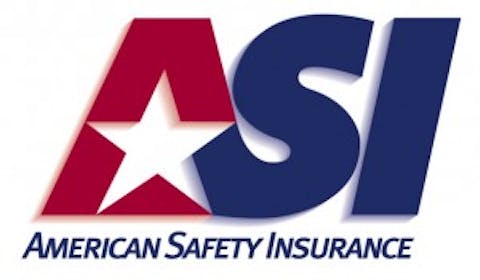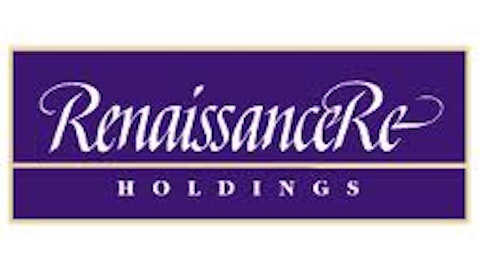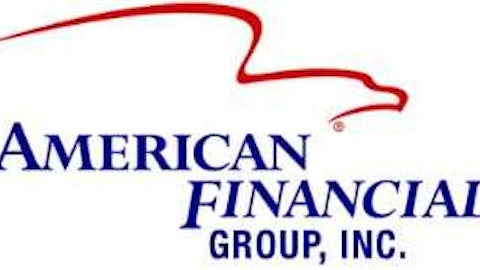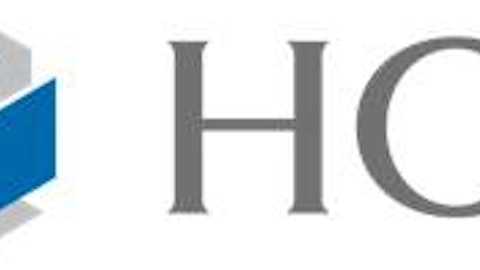Recently, shares of 
Let’s take a closer look at American Safety, which has a market cap of about $278 million, to see why Prem Watsa has a taste for this insurance company.
Cost of float is a bit lower than Treasury yield
American Safety is considered the specialty insurance and reinsurance underwriter, operating in three main insurance divisions: excess and surplus, alternative risk transfer and assumed reinsurance. Most of its earned premium, $138.5 million, or 54.5% of the total 2012 earned premium, was generated from the excess and surplus division, while the alternative risk transfer and the assumed reinsurance division contributed $56.47 million and $58.9 million, respectively, to earned premium.
In the past three years, American Safety Insurance Holdings, Ltd. (NYSE:ASI) had quite a reasonable combined ratio, fluctuating in the range of 100% to 111.8%. In 2012, the combined ratio was 108.1%.
In the insurance business, the float is one of the most important concepts. Float is the temporary free cash that insurers receive upfront when writing new policies. Insurers would only have to pay it out in the future when a certain insured event occurs. Thus, insurers could invest the float during the time they are holding it. I estimated that the 2012 float was around $633 million. In 2012, American Safety produced nearly $20.6 million in underwriting losses. Consequently, the cost to generate float was 3.2%, a bit lower than the 30-year Treasury yield of 3.3%.
As of March, American Safety Insurance Holdings, Ltd. (NYSE:ASI) had around $927 million in total investments. The majority of its investments were in fixed-maturity securities, some $818 million, while the short-term investments ranked second at $81.1 million. With the total amount of $306 million, the deal has valued American Safety at around 89% of the company’s book value.
Fairfax Financial and its terrific historical operating performance
American Safety was valued a much lower than Fairfax Financial in terms of book value. Fairfax, at $406.90 per share, is worth around $8.2 billion in market cap. Fairfax is trading at nearly 1.1 times its book value.
In 2012, Fairfax Financial’s insurance and reinsurance operation delivered an underwriting profit, with a combined ratio of 99.8%. The underwriting profit was caused by the significant underwriting profit of OdysseyRe and Fairfax Asia, with the low combined ratios of only 88.5% and 87%, respectively. Hence, Fairfax was paid to keep the float to invest.
As we all might know, Prem Watsa, with Fairfax Financial, adopted a similar strategy to legendary investor Warren Buffett with Berkshire Hathaway Inc. (NYSE:BRK-B). Prem Watsa is also considered one of the greatest investors in the world. In the period of 1986 to 2012, Fairfax Financial has grown its book value at as high as 22.7%, while the annualized gain in its share price was around 19% during those 27 years.
White Mountains with high underwriting profitability
Compared to one of American Safety Insurance Holdings, Ltd. (NYSE:ASI)’s peers, White Mountains Insurance Group Ltd (NYSE:WTM), American Safety had a lower price-to-book valuation. White Mountains is trading at $600 per share, with the total market cap of around $3.7 billion. The market values White Mountain at nearly its book value. Most of its earned insurance and reinsurance premiums, some $1.1 billion, were generated from its OneBeacon segment, while the Sirius Group produced nearly $932 million in earned premiums.
What I like about White Mountains is its consistent positive operating profit in the two biggest segments. In the past three years, OneBeacon segment’s combined ratio fluctuated in the range of 92% to 98%. The combined ratio of the Sirius segment fluctuated in the range of 90% and 100% during the three-year period. In 2012, its combined ratios of the OneBeacon and Sirius segment were 98% and 90%, respectively.
Among those three insurance companies, only White Mountains pays investors a dividend with a very small yield at 0.2%, while both Fairfax Financial and American Safety Insurance Holdings, Ltd. (NYSE:ASI) do not pay any dividends. White Mountains pays out only 3% of its earnings in dividends. Consequently, with the consistent underwriting profit and low payout ratio, White Mountain’s dividend could be considered quite sustainable.
My Foolish take
Prem Watsa seems to be excited about the deal as it could enhance Fairfax Financial’s insurance operations in several special lines of businesses. Moreover, by acquiring American Safety, Fairfax Financial could bring in more float for investments. With the potential synergy, American Safety Insurance Holdings, Ltd. (NYSE:ASI) could lower its cost to generate floats.
Under Prem Watsa’s leadership, Fairfax Financial has been always a long-term buy for many investors. I am also quite impressed with White Mountains in terms of the consistent underwriting profits in both of its insurance segments.
Anh HOANG has no position in any stocks mentioned. The Motley Fool has no position in any of the stocks mentioned.
The article Prem Watsa Likes This Small-Cap Insurance Business originally appeared on Fool.com.
Copyright © 1995 – 2013 The Motley Fool, LLC. All rights reserved. The Motley Fool has a disclosure policy.



